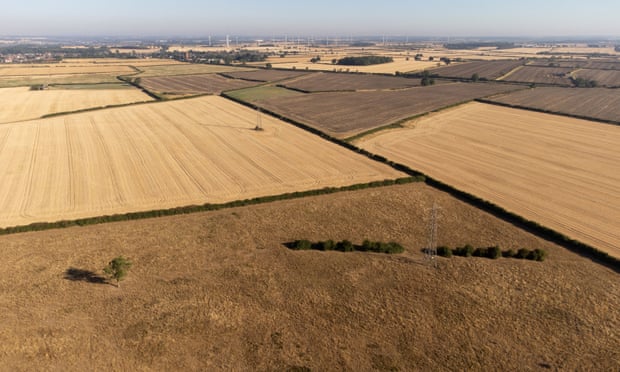Drought has been declared over a large area of United Kingdomafter an expert meeting.
Prolonged dry conditionsprevented some parts of the country from getting enough rainfall during the summer, leading the National Drought Group to declare a formal drought .
The Environment Agency experienced drought in 8 of its 14 regions. Devon and Cornwall, Solent and South Downs, Kent and South London, Hertz and North London, East Anglia, Thames, Lincolnshire and Northamptonshire, and the East Midlands.
The Environment Agency predicts two more regions will transition to drought later in August, according to documents seen by The Guardian. These are Yorkshire and West Midlands.
The group will meet earlier this summer to discuss the lack of rainfall and decide to put the country in a "long period of dryness." Did. Meteorological stage, one step short of drought. Now the country is leaning towards its second stage.
This means that water rationing could be nationwide for water companies that want to ban customers from using hose pipes to wash their cars with tap water. More stringent measures can also be taken at this stage, such as banning the use of sprinklers, cleaning buildings, vehicles and windows.
Those present at the conference were presented with dismal statistics on Britain's food security. Half of potato crops are expected to fail because they cannot be irrigated, and even crops such as corn, which are normally drought-tolerant, are failing.
The group was told that 'reservoirs were emptying rapidly and irrigation options were dwindling', with crops such as carrots, onions, sugar beets, apples and hops increasing between 10% and 50%. % loss is expected. Milk production is also declining nationwide due to shortages of cattle feed, and wildfires are jeopardizing vast areas of farmland.

Farmers are deciding whether or not to dig next year's crops, but many will be disappointed with disastrous consequences for the 2023 harvest. There is concern that some people will decide not to drill.
The government stressed that essential household water supplies were not in jeopardy.
Water Minister Steve Double said: Action is already being taken by governments and other partners, including the Environment Agency, to manage impacts. All water companies have assured us that essential supplies are still safe and have made it clear that it is their duty to maintain those supplies.
This group includes the water companies, the Department of Environment, Food and Rural Affairs (Defra), the Environment Agency (EA), the National Farmers Union, Natural England, CCW, Of Watts, Water UK, and the Drinking Water Inspectorate, Angling. Trust, Rivers Trust, etc.
Although the previous dry summer was offset by a wet autumn, meaning the worst impact on water supplies has not occurred, those who attended the meeting noted that dry conditions were expected. I was told that would not be the case this year because of the Continued due to climate disruption.
EA slides say: ) the gradual change in rainfall is most likely, There is no strong indication that the current dry conditions will improve significantly.”
Sefton said: River flows remain significantly or very low, and hydrological projections suggest this will continue in the coming months.
"When river flows are supported by groundwater that recharges during winter, the effects of dry weather are mitigated. severe hydrological and environmental droughts are likely, further increasing the water supply restrictions and fish protection seen in the southeast.”
The drought was last announced in That was inof 2018, when water companies nationwide banned the use of hose pipes.
Dry conditions and extreme heat in 2018 were 30 times more likely to be caused by climate change, according to the Japan Meteorological Agency.
above UK geographic regions and average temperatures. River flows, groundwater tables and reservoir stocks all decreased during July. The 13 EA monitoring index rivers are at the lowest levels ever recorded, with soil moisture deficits comparable to those seen at the end of the 1976 drought.
It is also understood that Scotland and Wales have similar drought-response groups and will meet this summer when it is drier than usual.


